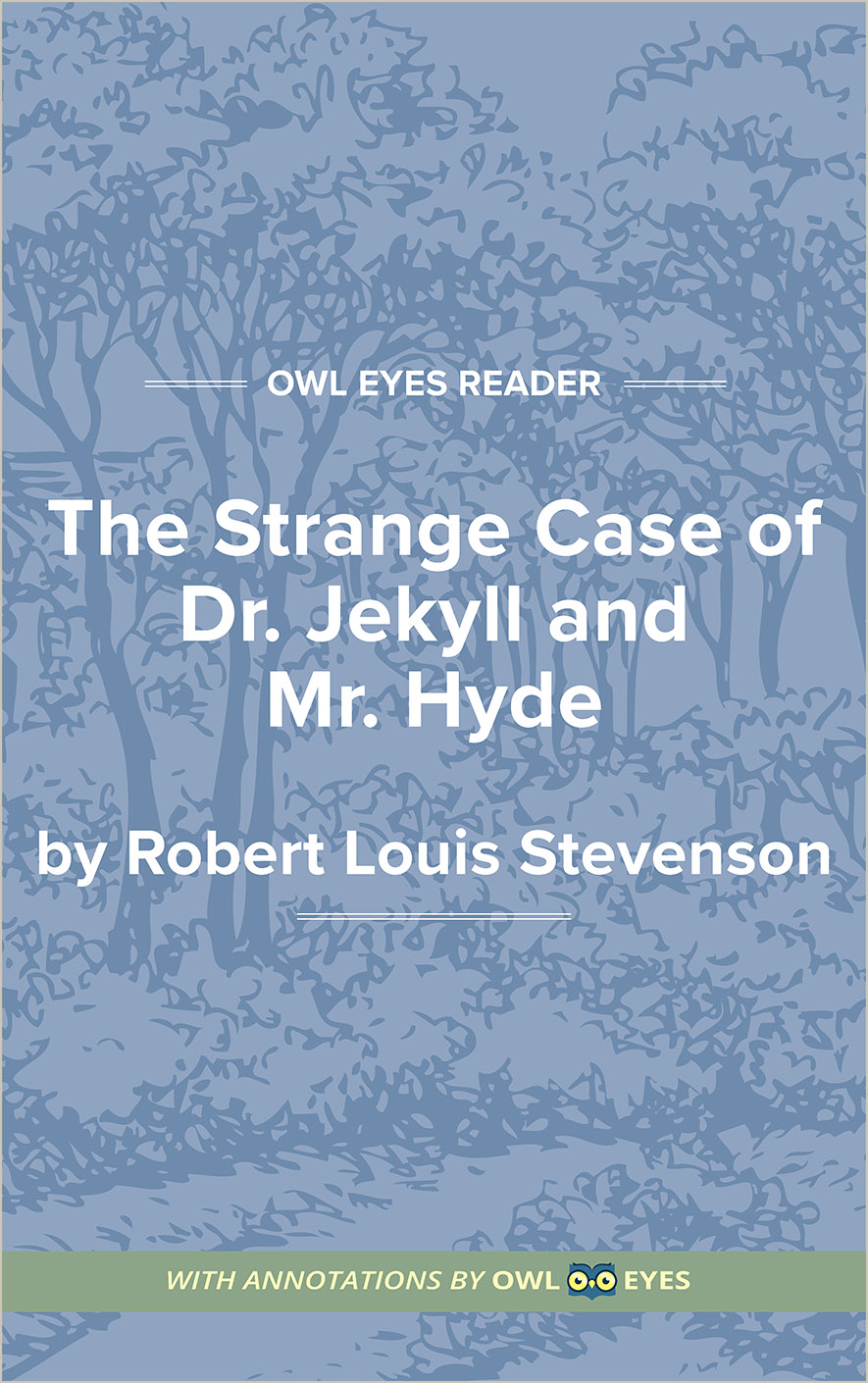Analysis Pages
Themes in The Strange Case of Dr. Jekyll and Mr. Hyde
Good vs. Evil: The story reflects the strict moral attitudes of the Victorian era, which have a dualistic character. According to the Victorians, there is little gray area between good and evil and both have specific purposes. Good behavior contributes to society and furthers its smooth functioning. Evil behavior encompasses anything that fails to serve the needs of society. Dr. Jekyll and Mr. Hyde embody these two poles of morality.
Repression of the Self: As the Austrian neurologist Sigmund Freud suggested, the price of civilization is neurosis, a splitting between the acceptable and unacceptable sides of the psyche, or soul. Those unacceptable portions become repressed, forming what Swiss psychiatrist Carl Jung referred to as the psyche’s “shadow.” Stevenson’s The Strange Case of Dr. Jekyll and Mr. Hyde is a parable about a man who uncovers the repressed side of his soul and unleashes his shadow. For a Victorian like Henry Jekyll, the shadow includes the wild, greedy, violent aspects of the soul, all of which take shape in Mr. Hyde.
The Dark Side of Progress: Much like Mary Shelley’s Frankenstein, The Strange Case of Dr. Jekyll and Mr. Hyde asks us to consider the price we pay for scientific curiosity. The 19th century was an era of unprecedented scientific and technological progress. Such unchecked progress inevitably carries a dark underside. Stevenson shows us the industrial smog that chokes the London air as well as the unforeseen terrors arising out of Dr. Jekyll’s chemical experimentations. Again and again, we witness the troubling consequences of the modern ideal of progress.
Themes Examples in The Strange Case of Dr. Jekyll and Mr. Hyde:
Chapter One
🔒"He was austere with himself; drank gin when he was alone, to mortify a taste for vintages; and though he enjoyed the theater, had not crossed the doors of one for twenty years...." See in text (Chapter One)
Chapter Four
🔒" gift (as Utterson supposed) from Henry Jekyll,..." See in text (Chapter Four)
"She had an evil face, smoothed by hypocrisy, but her manners were excellent...." See in text (Chapter Four)
Chapter Five
🔒"the procession of the town’s life was still rolling in through the great arteries with a sound as of a mighty wind...." See in text (Chapter Five)
Chapter Six
🔒"If I am the chief of sinners, I am the chief of sufferers also. I could not think that this earth contained a place for sufferings and terrors so unmanning;..." See in text (Chapter Six)
Chapter Eight
🔒"The scud had banked over the moon, and it was now quite dark...." See in text (Chapter Eight)
Chapter Nine
🔒"I feel that my days are numbered, and that I must die; and yet I shall die incredulous...." See in text (Chapter Nine)
"there stood Henry Jekyll!..." See in text (Chapter Nine)
"his remarkable combination of great muscular activity and great apparent debility of constitution..." See in text (Chapter Nine)
Chapter Ten
🔒"I became, in my own person, a creature eaten up and emptied by fever, languidly weak both in body and mind, and solely occupied by one thought: the horror of my other self...." See in text (Chapter Ten)
"Edward Hyde, alone in the ranks of mankind, was pure evil...." See in text (Chapter Ten)
"managed to compound a drug by which these powers should be dethroned from their supremacy..." See in text (Chapter Ten)
"It was the curse of mankind that these incongruous fagots were thus bound together’that in the agonized womb of consciousness..." See in text (Chapter Ten)
"I hazard the guess that man will be ultimately known for a mere polity of multifarious, incongruous, and independent denizens...." See in text (Chapter Ten)
"committed to a profound duplicity of life...." See in text (Chapter Ten)

